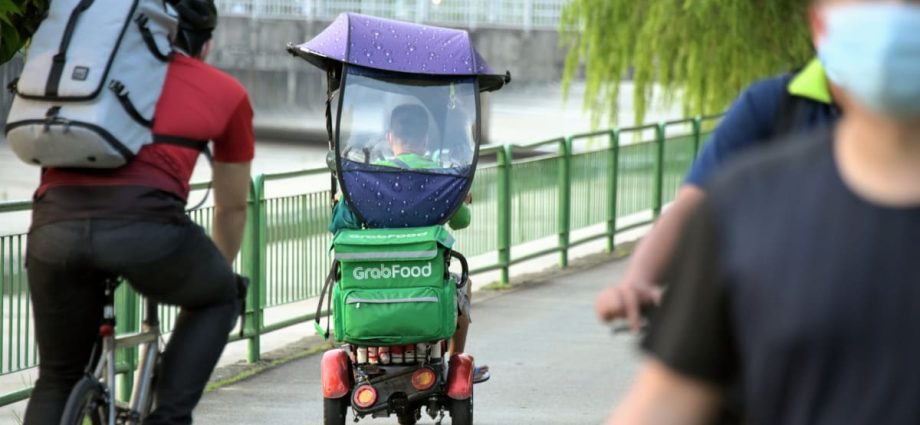
Mr Chew told CNA that Falcon Mobility would need six months to comply with a reduced speed limit for PMAs.
About 20 per cent of their electric wheelchairs and 75 per cent of mobility scooters are above the threshold and have maximum speeds of up to 10kmh, he said.
Depending on the device, Falcon Mobility will charge between S$30 and S$90 to reprogramme its speed limit – a service which may take anywhere from 30 minutes to two hours, according to Mr Chew.
He expects “thousands” of customers asking for their devices to be reprogrammed, and was concerned his company would be unable to cope with a “tsunami” of requests.
DNR Wheels’ sales and business development manager Jackson Teo said all of the disability equipment provider’s mobility scooters would be affected by a reduced speed limit.
While staff would be able to reprogramme them, the company will also need up to half a year to discuss with its manufacturer the production of PMAs with a default maximum speed of 6kmh.
Retailer Mobot’s brand manager Bobby Lai said his company might not be able to clear inventory accumulated for the holiday season. It would take up to four months to sell existing stock, he added.
POPULAR WITH FOOD DELIVERY RIDERS
In an Instagram poll by CNA, respondents said they often saw families using PMAs as a form of transport around neighbourhoods and more commonly, food delivery riders on PMAs and speeding on paths.
“One even livestreams his delivery and honks at pedestrians (while) speeding on the pavement,” said an Instagram user by the name of Joshua Tan.
Mirroring observations by the mobility panel’s focus groups, other poll respondents said the PMA riders appeared to be able-bodied, and that some were abusing the devices for their own entertainment.
Food delivery companies told CNA they would support riders should the proposed recommendations come to pass. They did not share how they would ensure riders complied with the requirements.
A Deliveroo spokesperson said that as part of supporting the diverse needs of riders, including those with disabilities, the company was “open” to them using vehicles that comply with local regulations, including PMAs, to fulfil their deliveries.
“The wellbeing and safety of our riders are always our top priorities, and we will continue to establish an inclusive environment for riders and the wider community.”
The Grab platform said a “small percentage” of delivery riders use PMAs currently.
“We will work closely with the government and do our best to support our delivery-partners through any transition if the recommendations are accepted,” a spokesperson said.
In a statement, foodpanda said it gave delivery riders the “freedom to sustain their livelihoods and pursue their goals”.
“Foodpanda maintains its commitment to making platform work safe, inclusive and accessible to all delivery partners. The safety and welfare of our delivery partners, regardless of delivery mode, and the wider community continues to be our number one priority,” a spokesperson said.
Foodpanda also said it hoped that government policies would consider the impact on the livelihoods of delivery riders.
“We stand ready to work closely with authorities towards improving guidelines around the use of PMAs and an implementation that is fair to all stakeholders,” it added.

